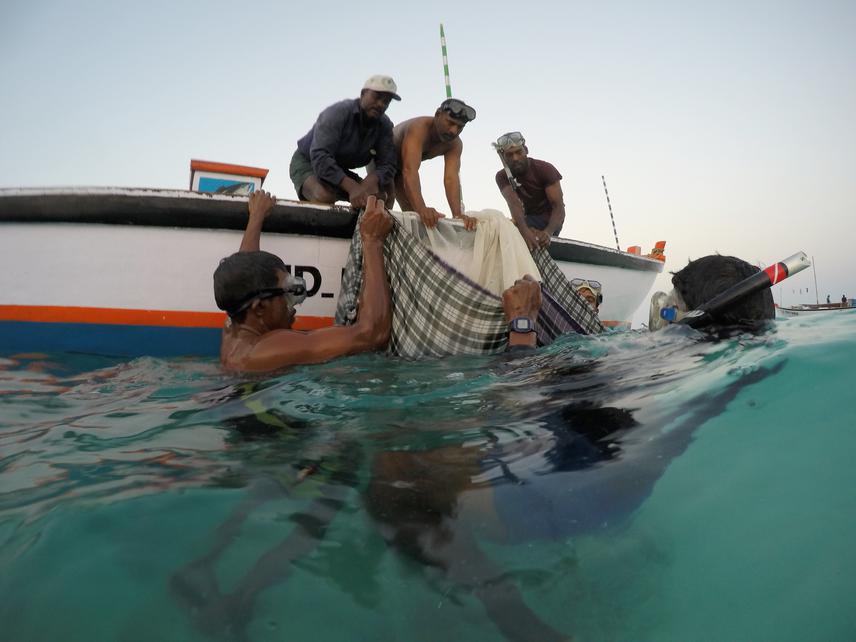Mahima Jaini
Other projects
18 Jan 2012
Linking Conservation and Livelihoods in Lakshadweep's Tuna Fishery: Community-Based Monitoring of Baitfish Populations Along a Gradient of Fishing Pressure
With our second Rufford grant, we hope to build upon our previous work, strengthening the sustainability of the live-bait pole and line fishery through researcher and community-based fisheries monitoring and market research. Improvements in monitoring, management and markets are critical to safeguard a shift from the traditional pole and line fishery to unsustainable reef fishing practices.

India’s only coral reef atolls, the Lakshadweep Islands, harbour one of the few standing examples of a sustainable tuna fishery. The live-bait pole and line tuna fishery targets oceanic skipjack tuna (Katsuwonus pelamis) with the use of small planktivorous reef and lagoon fish as live-bait. The fishery utilises resilient species in a low-impact manner and helps divert fishing pressure off sensitive coral reef resources.
Unfortunately, today rising costs and declining catches are threatening a shift to reef fishing. Improvements in monitoring are required to better understand the dynamics of the fishery and to fulfil basic sustainable seafood requirements in order to improve markets and safeguard livelihoods.
Through this second grant we build upon our previous work with aims to strengthen the monitoring and management of the Lakshadweep pole and line fishery. Between 2012 and 2014 we conducted social and ecological surveys, in the islands of Agatti, Kadmat, Kavaratti and Minicoy. This year we plan to maintain our Kavaratti baitfish survey as part of a long-term monitoring program. In addition to this, we also hope to survey the uninhabited island of Suheli, an island that only recently became witness to fishing pressure. In January of 2014, we initiated a community-based catch monitoring project and through this second grant we hope to improve and build upon that work. Through community-based resource monitoring we hope to increase stakeholder participation, providing users a greater sense of ownership while helping fill information gaps. This season we will also initiate research on fisheries market dynamics to understand if sustainable seafood certifications can help safeguard resources and livelihoods as well as prevent a shift to reef fishing in the Lakshadweep archipelago.
In addition to our research work, we are also focused on building local capacity and global collaborations to safeguard the sustainable future of the Lakshadweep pole and line tuna fishery. We are working with state departments and international NGOs on this project and hopefully more in the future in order to achieve long-lasting results.